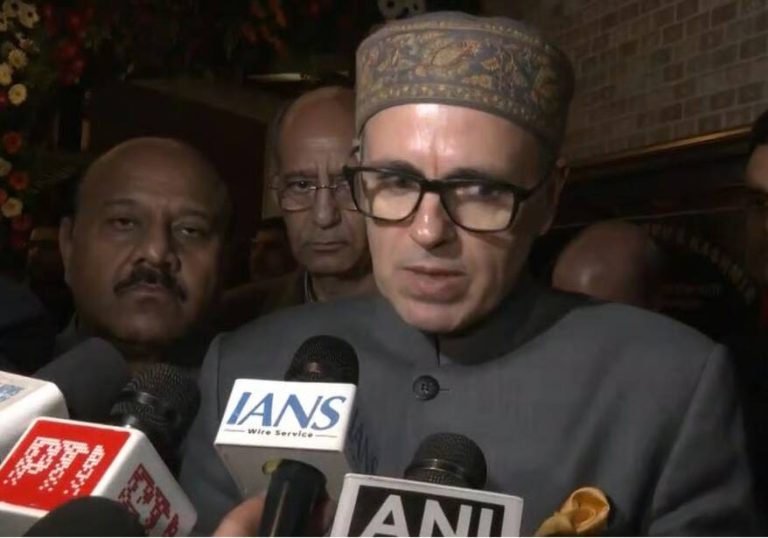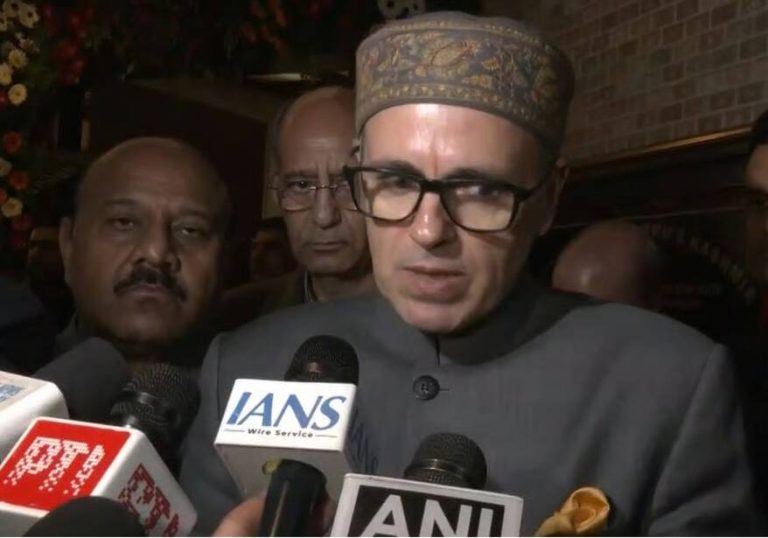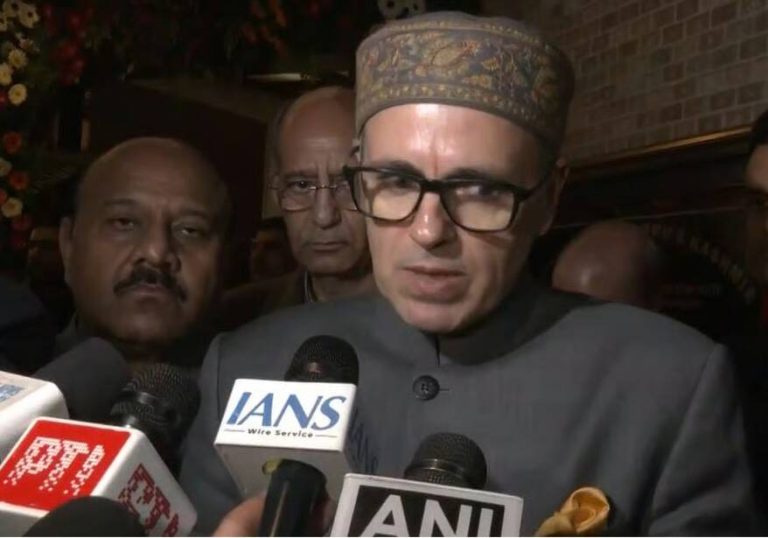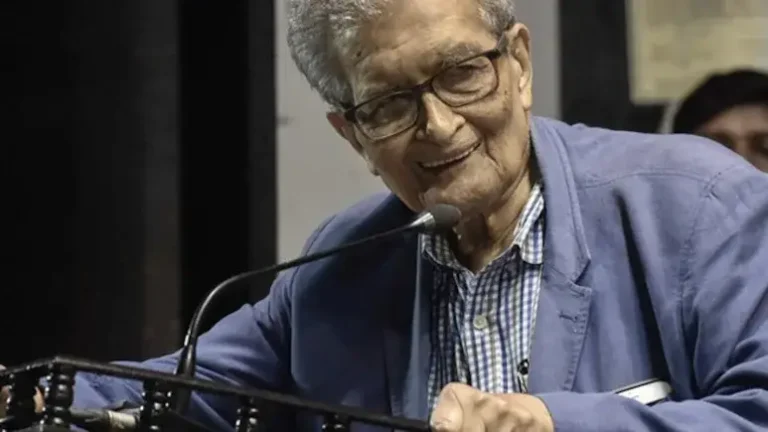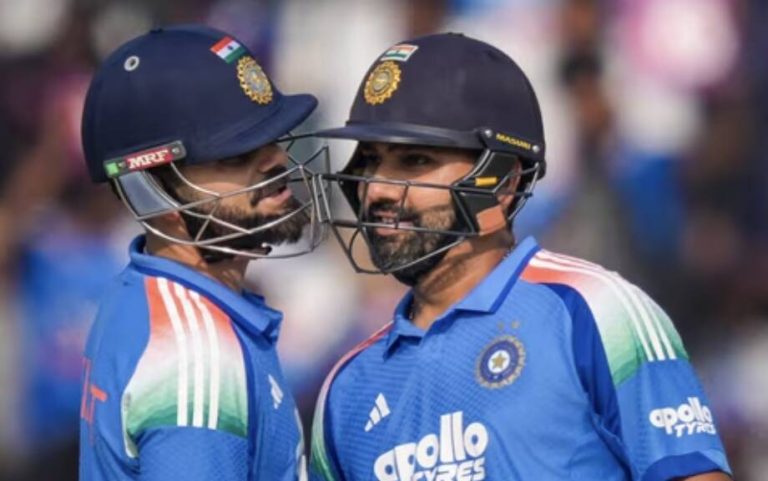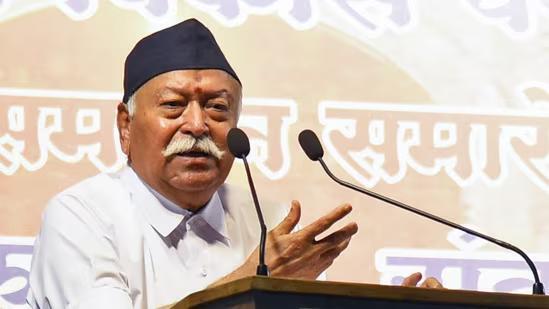
Muslims & Christians are also Hindus if they follow Indian culture: RSS chief Bhagwat
In a recent statement, Rashtriya Swayamsevak Sangh (RSS) chief Mohan Bhagwat has sparked a new debate by redefining the term “Hindu”. According to him, anyone who takes pride in Bharat (India) and follows Indian culture is a Hindu. This definition extends beyond the traditional understanding of Hinduism as a religion, to encompass people of other faiths who identify with Indian culture and values.
Bhagwat’s statement has significant implications, as it suggests that Muslims and Christians who worship this country and follow Indian customs and traditions can also be considered Hindus. This perspective challenges the conventional notion of Hinduism as a rigidly defined religious identity, and instead, presents a more inclusive and cultural understanding of the term.
The RSS chief’s comments were made in the context of the ongoing debate about whether India should be declared a “Hindu Rashtra” (Hindu nation). Bhagwat argued that India does not need an official label to be a Hindu Rashtra, as its civilisation already reflects the values and principles of Hinduism. He emphasized that the essence of Hinduism lies in its culture, traditions, and way of life, rather than in a specific religious dogma.
Bhagwat’s definition of Hinduism is not limited to people who worship Hindu deities or follow Hindu rituals. Rather, it encompasses anyone who identifies with Indian culture, values, and traditions. This means that Muslims and Christians who celebrate Indian festivals, respect Indian customs, and take pride in Indian heritage can also be considered Hindus.
This perspective is not entirely new, as there have been previous attempts to define Hinduism in more inclusive terms. However, Bhagwat’s statement has sparked a fresh debate about the nature of Hindu identity and the relationship between religion, culture, and nationality.
One of the key implications of Bhagwat’s statement is that it challenges the idea of a rigidly defined Hindu-Muslim or Hindu-Christian binary. By suggesting that people of other faiths can also be considered Hindus, Bhagwat’s definition blurs the lines between different religious identities. This could potentially lead to a more inclusive and pluralistic understanding of Indian society, where people of different faiths can coexist and identify with a shared cultural heritage.
However, Bhagwat’s statement has also been criticized by some as an attempt to co-opt or assimilate minority communities into a dominant Hindu identity. Some argue that this definition of Hinduism erases the distinct cultural and religious identities of Muslims and Christians, and imposes a homogeneous Hindu culture on diverse communities.
Another criticism of Bhagwat’s statement is that it ignores the historical and ongoing struggles of minority communities in India. Many Muslims and Christians have faced discrimination, marginalization, and violence in India, and Bhagwat’s definition of Hinduism does not acknowledge these experiences. By suggesting that Muslims and Christians can be considered Hindus if they follow Indian culture, Bhagwat’s statement may be seen as dismissive of the specific challenges and concerns of minority communities.
Despite these criticisms, Bhagwat’s statement reflects a broader trend in Indian society, where there is a growing emphasis on cultural nationalism and the celebration of Indian heritage. Many Indians, across different religious and cultural backgrounds, take pride in Indian culture and traditions, and identify with a shared sense of national identity.
In conclusion, RSS chief Mohan Bhagwat’s statement that Muslims and Christians can be considered Hindus if they follow Indian culture has sparked a significant debate about the nature of Hindu identity and the relationship between religion, culture, and nationality. While this definition has the potential to promote inclusivity and pluralism, it also raises important questions about the erasure of minority identities and the imposition of a dominant Hindu culture. As India continues to grapple with issues of identity, culture, and nationalism, Bhagwat’s statement is likely to remain a topic of discussion and debate.
